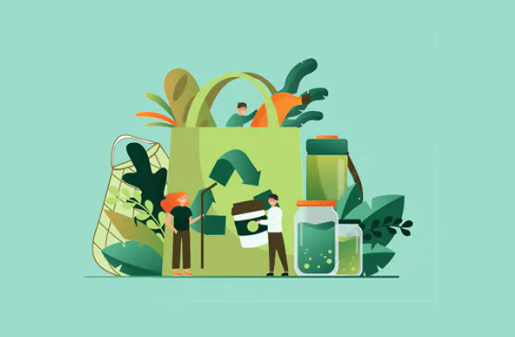Embracing Recyclability and Sustainability in Packaging

The Future of Tea: Embracing Recyclability and Sustainability in Packaging
In a world increasingly aware of the environmental impact of packaging waste, the tea industry faces a significant challenge: ensuring that its packaging is not only functional but also sustainable. This article delves into the recyclability of tea packaging, spotlighting innovations in eco-friendly tea packaging and plant-based compostable packaging.

The Complexities of Tea Packaging
Tea packaging varies widely, from traditional plastic-lined paper bags to modern foil envelopes and plastic containers. While these materials ensure product freshness, they pose challenges for recycling and composting. The quest for sustainability has led to the development of innovative packaging solutions designed to minimize environmental impact without compromising quality.
Innovations in Eco-Friendly Tea Packaging
Brands are increasingly turning to eco friendly tea packaging, incorporating materials that are either recyclable or compostable. From using unbleached paper to adopting plant-based compostable packaging, the industry is exploring avenues to combine sustainability with practicality, ensuring tea lovers can enjoy their brew guilt-free.
The Role of Plant-Based Compostable Packaging
Plant-based compostable packaging represents a leap forward in sustainable packaging. Made from renewable resources like cornstarch or bamboo, this type of packaging breaks down in composting environments, turning into nutrient-rich soil instead of lingering in landfills. Its adoption in tea packaging signifies a commitment to environmental stewardship and a move towards circular economies.
Challenges and Opportunities
Transitioning to sustainable packaging is not without its challenges. Issues such as cost, supply chain logistics, and consumer education on proper disposal methods must be addressed. However, these challenges also present opportunities for innovation, brand differentiation, and leadership in sustainability efforts within the tea industry and beyond.
The Impact on Recycling and Waste Management
The shift towards more eco friendly tea packaging has a profound impact on recycling and waste management practices. By reducing the reliance on non-recyclable materials and enhancing the compostability of tea packaging, the industry can significantly reduce its environmental footprint and contribute to a more sustainable future.
Conclusion: A Call to Action
The journey towards fully recyclable and sustainable tea packaging is ongoing. It requires the collective effort of manufacturers, consumers, waste management entities, and policymakers. By embracing eco-friendly tea packaging and plant-based compostable packaging, we can ensure that our love for tea contributes positively to the planet's health.
- Art
- Causes
- Crafts
- Dance
- Drinks
- Film
- Fitness
- Food
- Jeux
- Gardening
- Health
- Domicile
- Literature
- Music
- Networking
- Autre
- Party
- Religion
- Shopping
- Sports
- Theater
- Wellness
- Travels

